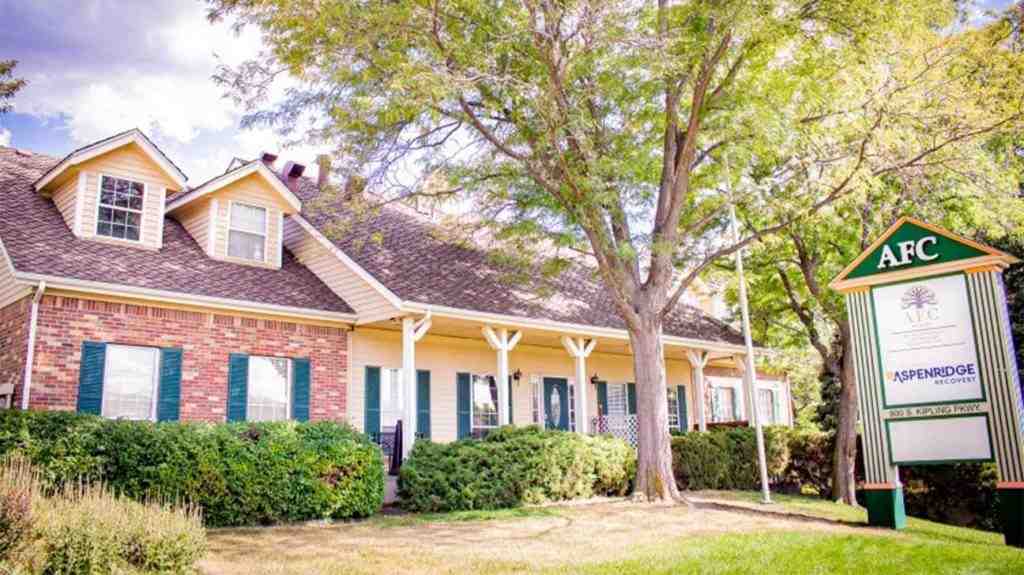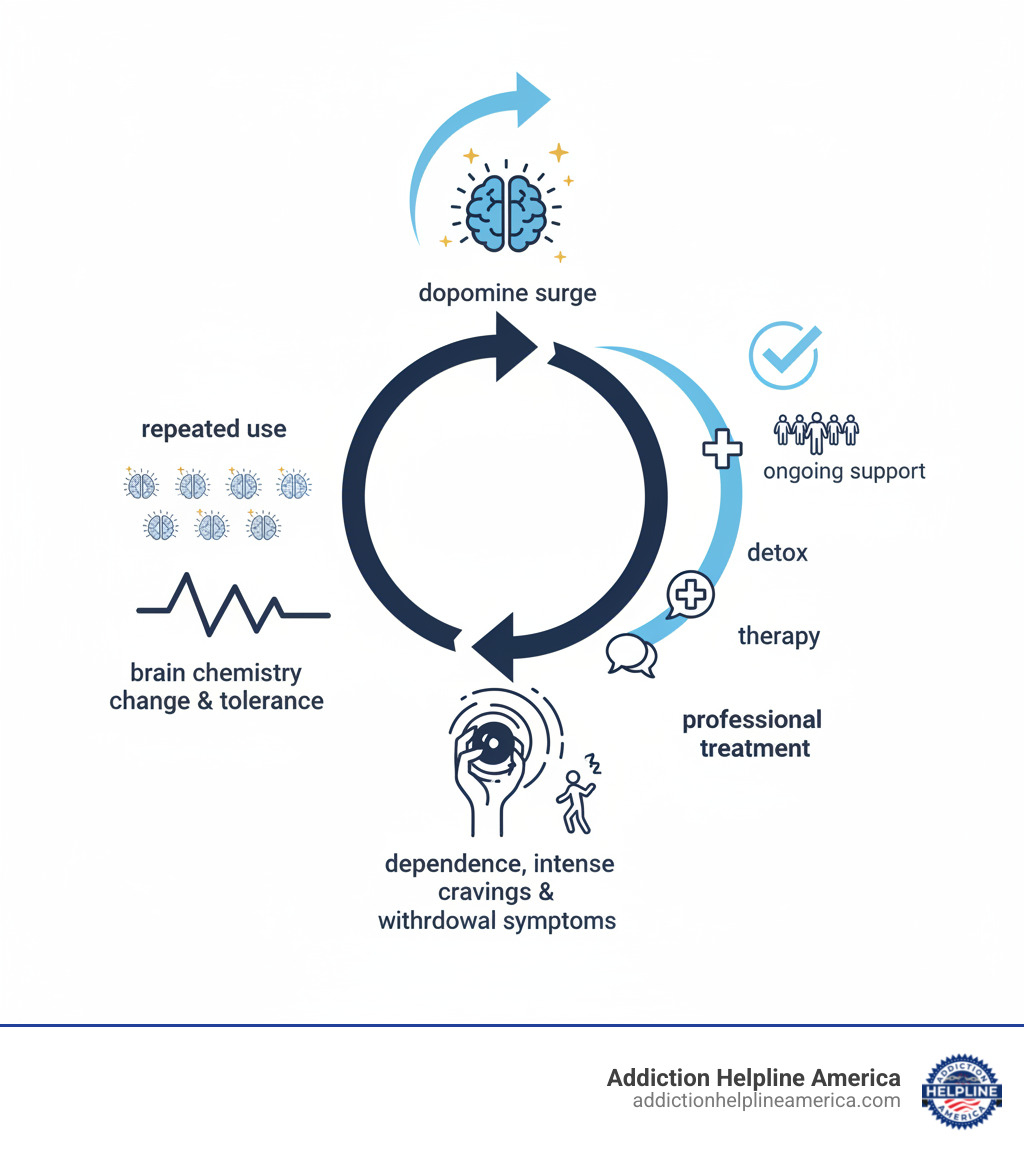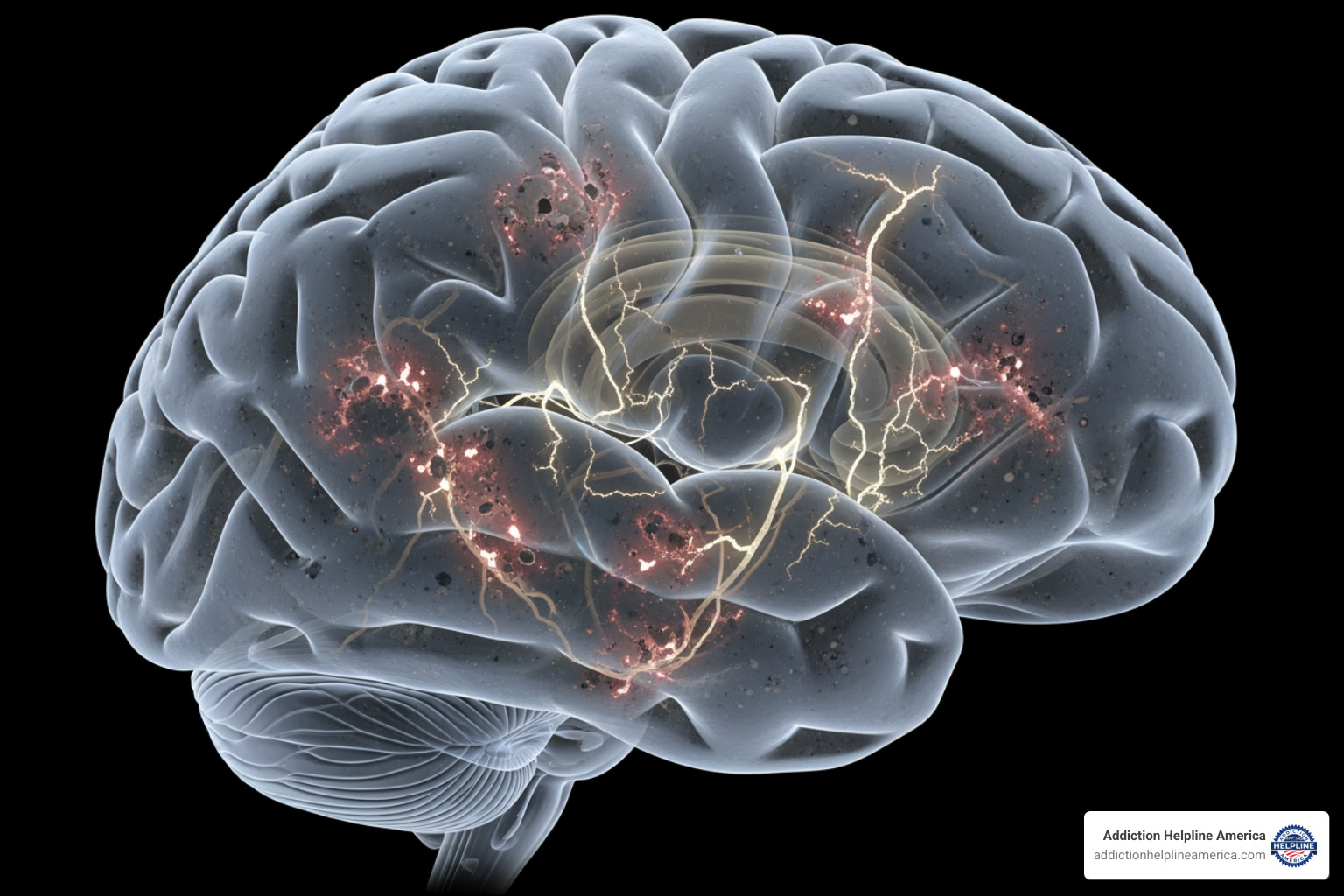
Understanding Cocaine Addiction and the Path to Recovery
Cocaine addiction rehab is a specialized treatment process that helps individuals overcome dependence on cocaine through medically supervised detox, behavioral therapies, and ongoing support. Cocaine addiction is devastating, damaging health, relationships, and finances by hijacking the brain’s reward system. But recovery is possible.
In 2021, 1.8 million Americans aged 12 or older reported recent cocaine use, and related deaths have increased fivefold since 2010, often due to fentanyl contamination. Despite these dangers, research shows that the majority of people treated for cocaine addiction remain drug-free.
A typical treatment plan includes:
- Detoxification: Managing withdrawal symptoms like fatigue and depression (7-10 days).
- Behavioral Therapies: Using proven methods like Cognitive Behavioral Therapy (CBT) and Contingency Management.
- Level of Care: Choosing between inpatient (24/7 care) or outpatient (flexible) programs.
- Ongoing Support: Aftercare planning, support groups, and relapse prevention.
- Duration: Programs often last 30-90 days, with long-term support afterward.
While no FDA-approved medications exist specifically for cocaine addiction, treatment focuses on behavioral interventions and addressing co-occurring mental health conditions. This guide will walk you through the entire process, from recognizing the need for help to maintaining long-term sobriety.
At Addiction Helpline America, we connect individuals with evidence-based cocaine addiction rehab programs custom to their needs. Our team provides compassionate, confidential guidance 24/7 to help you take the first, most difficult step.

Cocaine addiction rehab basics:
Recognizing the Need for Help: Signs and Dangers of Cocaine Use
The hardest part of recovery is often admitting there’s a problem. The key warning sign is simple: you can’t cut down or stop, even when you want to. Cocaine rewires the brain, and a stimulant use disorder can develop in as little as one week. What starts as occasional use can quickly spiral out of control.

Signs and Symptoms of Cocaine Addiction
Look for these changes in yourself or a loved one:
- Behavioral Signs: Using more cocaine than intended; neglecting work, school, or home responsibilities; spending excessive time getting, using, or recovering from the drug; losing interest in old hobbies; changing social circles to be around other users.
- Psychological Signs: Talking rapidly; making impulsive decisions; unnatural spikes in energy; depression or anxiety between uses; extreme mood swings; paranoia, delusions, or psychosis in severe cases. Cocaine hijacks the brain’s reward system, which helps explain why stopping feels impossible. Do Drug Addicts Crave Dopamine explores this in detail.
- Physical Signs: Frequent nosebleeds (if snorted); dilated pupils; restlessness and muscle twitching; racing heart; inability to focus; dramatic weight loss due to lack of sleep and appetite.
- Social & Financial Signs: Damaged relationships with family and friends; secrecy and hostility; eroded trust; depleted savings and unpaid bills; job loss or dropping out of school.
Recognizing these signs is the first step toward healing. The Usage Of Drugs Increasing Addiction page offers more insight into how use escalates.
Call Now – Your Journey to Recovery Begins Today!

Take the first step towards a healthier life! Call now to connect with our compassionate team and start your recovery journey today. Your path to healing awaits!
Our recovery specialists are available 24/7 to provide support, and all calls are confidential and free. Reach out anytime – we’re here to help!
The Health Risks: From Short-Term Effects to Overdose
Cocaine is dangerous every time it’s used. The initial euphoria comes with panic, anxiety, and paranoia. More severe reactions include tremors, violent behavior, and rapid breathing. Sudden death from overdose can happen even on the first use.
Long-term health consequences are severe:
- Mental: Chronic depression, extreme mood swings, psychosis, and paranoia.
- Physical: Heart attacks, aortic ruptures, lung damage, digestive issues, liver and kidney damage, and cognitive decline. For pregnant women, use poses serious risks to both mother and baby.
Overdose is a constant threat. In 2021, over 24,000 people died from cocaine-involved overdoses, with symptoms like seizures, stroke, and respiratory failure.
The danger is magnified by fentanyl contamination. Dealers often mix cocaine with this potent synthetic opioid, and a lethal dose can be as small as a few grains of salt. You can’t know what you’re taking.
Mixing cocaine with other substances is also incredibly risky. Combining it with alcohol creates cocaethylene, a chemical highly toxic to the heart. Mixing it with opioids like heroin (a “speedball”) can easily lead to a fatal overdose.
The risks are real and immediate. Cocaine addiction rehab offers a safe way out. At Addiction Helpline America, we’ve seen thousands break free. Recovery is possible, and we’re here to help you find the right program.
The Core Components of Cocaine Addiction Rehab
Professional treatment offers the best path forward, built on proven methods custom to your unique situation. The journey through cocaine addiction rehab typically moves from detox to therapy and into long-term support, creating a foundation for lasting recovery. You can learn more about various approaches on our Addiction Treatment page.

Step 1: Cocaine Detox and Withdrawal Management
Detox is the first step, where your body clears the drug. While cocaine withdrawal isn’t typically physically life-threatening like alcohol or opioid withdrawal, the psychological symptoms can be severe and dangerous.
- What to Expect: The “crash” can be brutal, with intense cravings, profound fatigue, vivid and unpleasant dreams, increased appetite, agitation, and severe depression.
- Timeline: The acute phase usually lasts 7 to 10 days, but psychological symptoms like cravings and depression can linger for weeks or months.
- Why Medical Supervision is Crucial: The risk of severe depression and suicidal thoughts during withdrawal is high. A medically supervised detox provides 24/7 monitoring and supportive care to ensure your safety and comfort, increasing your chances of success.
Step 2: Effective Therapies for Cocaine Addiction
After detox, behavioral therapies begin. These are the most effective tools for treating cocaine addiction, helping you understand the root causes of your use and build skills for a drug-free life.
- Cognitive Behavioral Therapy (CBT): Helps you identify and change unhealthy thought patterns and behaviors that lead to drug use. It’s effective for managing triggers, stress, and co-occurring mental health issues.
- Contingency Management (CM): Uses positive reinforcement, like vouchers or small prizes, for maintaining sobriety. This helps retrain the brain’s reward system.
- Motivational Interviewing (MI): A collaborative approach that helps you find your own internal motivation to change, which is crucial for long-term success.
- Individual and Group Counseling: Individual therapy provides a private space to address personal issues like trauma, while group therapy offers a supportive community of peers who understand your struggle.
- Family Counseling: Helps repair relationships damaged by addiction, improves communication, and teaches loved ones how to support your recovery effectively.
Many programs also use holistic approaches like mindfulness, yoga, or art therapy to support overall well-being. Learn more at our Holistic Drug Rehab page.
The Role of Medication in Treatment
A common question is whether medication can help with cocaine addiction.
Currently, there are no FDA-approved medications specifically for treating cocaine use disorder. This means behavioral therapies are the primary and most effective form of treatment.
However, medication can play a supportive role. Physicians may use certain medications “off-label” to manage severe withdrawal symptoms. More importantly, medication is often essential for treating co-occurring mental health conditions like depression or anxiety. Stabilizing your mental health can significantly reduce the urge to use cocaine. If you also struggle with alcohol, medications like disulfiram may be used to help prevent relapse.
Choosing the Right Level of Care for Treatment
Finding the right treatment setting is a critical decision. There’s no single “right” answer; the best fit depends on your unique situation. A comprehensive substance abuse evaluation helps determine the appropriate level of care by assessing:
- The severity and history of your addiction.
- Your home environment and whether it’s supportive of recovery.
- The presence of any co-occurring mental health or medical conditions.
Based on this evaluation, you can decide between an inpatient setting or a more flexible outpatient program. For a deeper look at this choice, see Do I Need Inpatient Rehab.
| Feature | Inpatient (Residential) Rehab | Outpatient Rehab |
|---|---|---|
| Setting | Live at the treatment center 24/7 | Live at home, attend sessions at a facility |
| Intensity | Highly structured, constant supervision | Flexible scheduling, varying intensity |
| Environment | Safe, drug-free, removes external triggers | Allows continuation of daily life |
| Medical Care | 24/7 medical and clinical supervision | Scheduled medical appointments |
| Ideal Candidate | Severe addiction, unstable home, co-occurring disorders | Less severe addiction, stable home, strong support |
Inpatient and Residential Cocaine Addiction Rehab
Inpatient rehab offers the most comprehensive level of care, ideal for those with severe addiction, an unsupportive home environment, or co-occurring mental health issues. You live at the facility, fully immersed in a structured, trigger-free environment where recovery is your only focus.
Days are filled with individual and group therapy, educational workshops, and activities designed to rebuild your life. With 24/7 medical and psychological support, help is always available, which can be lifesaving in early recovery. Programs typically last 30, 60, or 90 days, with longer stays providing more time to solidify new skills.
Call Now – Your Journey to Recovery Begins Today!

Take the first step towards a healthier life! Call now to connect with our compassionate team and start your recovery journey today. Your path to healing awaits!
Our recovery specialists are available 24/7 to provide support, and all calls are confidential and free. Reach out anytime – we’re here to help!
Outpatient Cocaine Addiction Rehab Programs
Outpatient rehab weaves treatment into your existing life, allowing you to maintain work, school, and family responsibilities. This option is suitable for those with less severe addiction and a stable, supportive home. There are several levels of intensity:
- Partial Hospitalization Programs (PHP): The most intensive option, requiring attendance for several hours a day, five days a week. It offers a level of care similar to inpatient treatment while you live at home.
- Intensive Outpatient Programs (IOP): A step down in intensity, with treatment several days a week for a few hours at a time. It provides regular support and accountability.
- Standard Outpatient Counseling: The least intensive option, typically involving weekly individual or group therapy sessions. It’s ideal for mild issues or as ongoing support after a higher level of care.
Living at home allows you to practice coping skills in a real-world setting while still receiving professional guidance. At Addiction Helpline America, we help you determine which level of care gives you the best chance at a cocaine-free life.
Sustaining Recovery: Aftercare and Long-Term Support
Completing a cocaine addiction rehab program is a major achievement, but it’s the starting point, not the finish line. Addiction is a chronic condition that requires ongoing management. A strong aftercare plan is often the key to long-term sobriety.

Rehab gives you the tools; aftercare teaches you how to use them in the real world. Recovery isn’t just about not using—it’s about building a life so fulfilling you don’t want to use. Our Relapse Prevention Tips can help you develop strategies for this critical phase.
The Role of Support Groups in Sobriety
Connecting with others who understand your journey is a powerful, free resource. Support groups provide a peer network for sharing experiences and coping strategies. This shared understanding reminds you that you’re not alone and that recovery is possible.
Popular options include:
- Narcotics Anonymous (NA): A 12-step program focused on spiritual growth and peer support.
- Cocaine Anonymous (CA): A 12-step fellowship specifically for those recovering from cocaine and other stimulant addictions.
- SMART Recovery: A science-based, non-spiritual alternative that teaches self-empowerment techniques.
These groups are widely available in-person and online. Addiction Helpline America can help you find a group that fits your needs.
Building an Aftercare and Relapse Prevention Plan
Your aftercare plan is a personalized roadmap for staying sober. It should address your specific triggers, challenges, and goals. Key components include:
- Sober Living Homes: Structured, drug-free residences that provide a supportive bridge between inpatient treatment and independent living.
- Continued Individual Therapy: Ongoing sessions with a therapist provide accountability and help you steer life’s challenges without turning to cocaine.
- Alumni Programs: Staying connected to your treatment center’s community through events and mentorship reinforces your commitment to recovery.
- Healthy Coping Skills: Replacing drug use with new tools like mindfulness, exercise, or creative hobbies to manage stress, boredom, and other triggers.
- Stress Management Techniques: Developing specific strategies like yoga, journaling, or breathing exercises to handle one of the most common relapse triggers.
Recovery is a lifelong journey, but it gets easier with time and a solid support system. Our First Steps to Recovery guide offers more insights into building this foundation.
Frequently Asked Questions about Cocaine Rehab
It’s natural to have questions when considering cocaine addiction rehab. Here are answers to some of the most common concerns.
How do I find and pay for a cocaine addiction treatment center?
Finding and funding treatment can seem daunting, but options are available.
- Finding a Center: Online directories can be overwhelming. At Addiction Helpline America, we simplify the process by providing free, confidential guidance to connect you with vetted centers that match your needs.
- Costs and Payment: Treatment costs vary widely. The good news is that most major insurance plans cover addiction treatment. We can help you verify your benefits to understand what’s covered. For remaining costs, many facilities offer payment plans, sliding scale fees, or financing. Don’t let cost be a barrier to getting help.
For immediate, free assistance, contact our Addiction and Rehab Hotlines.
Can cocaine addiction be cured?
Addiction is best understood as a chronic, manageable disease, similar to diabetes or asthma, not a moral failing. Because it’s a complex brain condition, there is no simple “cure.”
However, recovery is a lifelong process of managing the condition. Individuals can and do achieve long-term remission, living healthy, fulfilling, drug-free lives. Research shows that the majority of people who receive professional treatment for cocaine addiction remain sober. Treatment works, and sustained recovery is entirely attainable with commitment.
How long does cocaine rehab take?
The duration of treatment is custom to individual needs, so there’s no one-size-fits-all timeline.
- Detox: The acute withdrawal phase typically lasts 7-10 days.
- Inpatient Programs: These residential programs usually last 30, 60, or 90 days. Longer stays are often recommended for those with co-occurring disorders or a history of relapse.
- Outpatient Programs: The length can vary from several weeks for a Partial Hospitalization Program (PHP) to several months for an Intensive Outpatient Program (IOP).
Formal treatment is just the beginning. Recovery is a long-term commitment that includes ongoing participation in aftercare, support groups, and therapy to maintain sobriety for a lifetime.
Call Now – Your Journey to Recovery Begins Today!

Take the first step towards a healthier life! Call now to connect with our compassionate team and start your recovery journey today. Your path to healing awaits!
Our recovery specialists are available 24/7 to provide support, and all calls are confidential and free. Reach out anytime – we’re here to help!
Your Path to a Cocaine-Free Life Starts Now
You’ve learned about the harsh realities of cocaine addiction and the proven path to recovery through cocaine addiction rehab. The most important takeaway is this: Cocaine addiction is a treatable disease, and long-term recovery is not just possible—it’s probable with the right help.
The hardest step is acknowledging the problem and asking for help. From there, a clear roadmap exists: medically supervised detox, effective behavioral therapies, and a level of care custom to your needs. After treatment, ongoing support through aftercare plans and groups like Narcotics Anonymous provides the foundation for a new, sober life.
You don’t have to figure this out alone or wait for things to get worse. At Addiction Helpline America, we’ve helped thousands of people steer these challenges. We offer free, confidential, and personalized guidance to connect you with the right treatment program. There’s no judgment and no pressure.
Your path to a cocaine-free life can start right now.
Contact our 24/7 emergency substance abuse hotline for immediate, confidential help
Our helpline is 100%
free & confidential
If you or someone you care about is struggling with drug or alcohol addiction, we can help you explore your recovery options. Don’t face this challenge alone—seek support from us.
Programs
Expert Support and Resources for Cocaine Addiction Recovery
Will my insurance
cover addiction
treatment?
We're ready to help
Find the best
drug or alcohol treatment
center
Are you or a loved one struggling with addiction? Call today to speak to a treatment expert.















